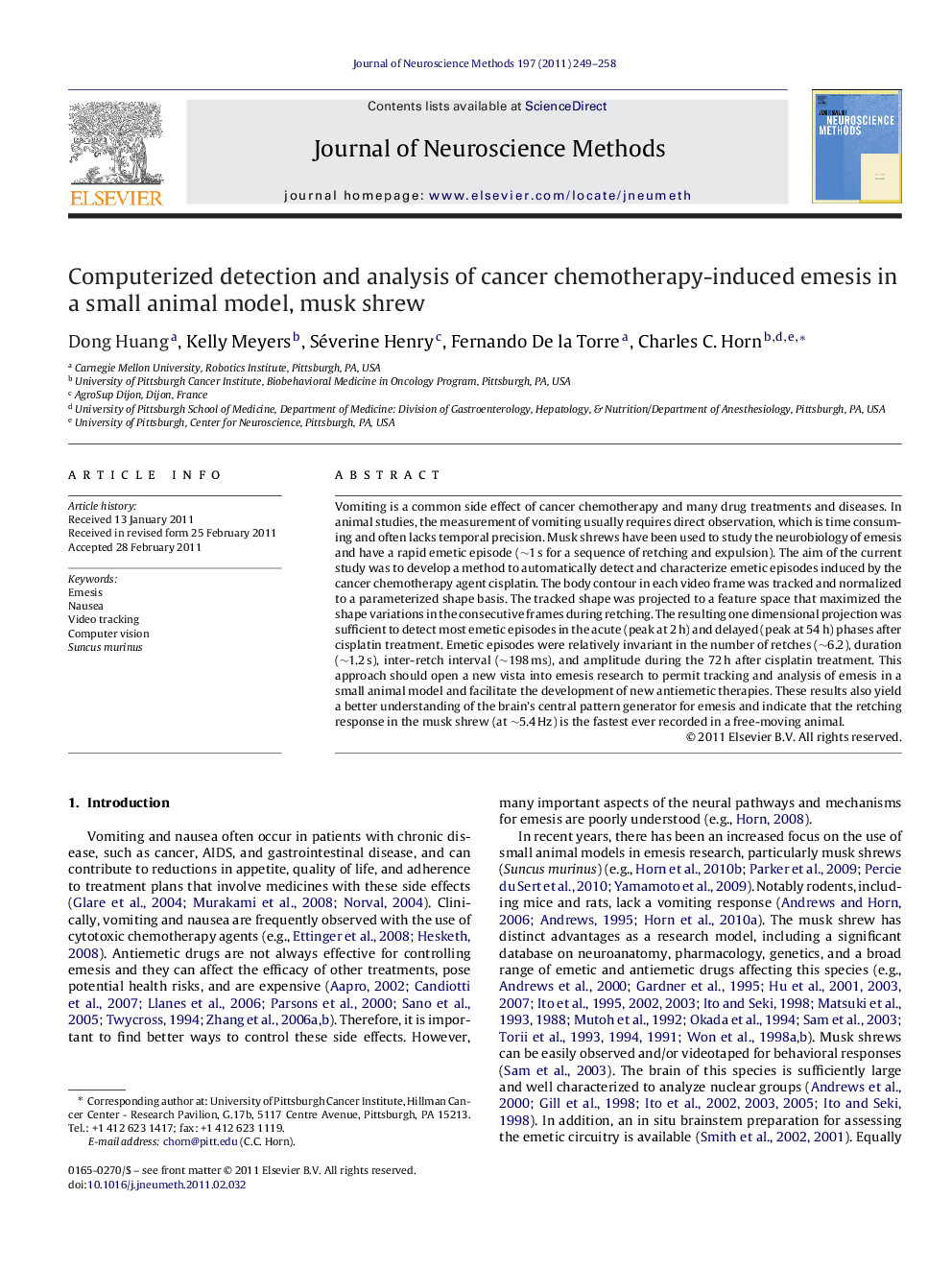| Article ID | Journal | Published Year | Pages | File Type |
|---|---|---|---|---|
| 6269818 | Journal of Neuroscience Methods | 2011 | 10 Pages |
Vomiting is a common side effect of cancer chemotherapy and many drug treatments and diseases. In animal studies, the measurement of vomiting usually requires direct observation, which is time consuming and often lacks temporal precision. Musk shrews have been used to study the neurobiology of emesis and have a rapid emetic episode (â¼1Â s for a sequence of retching and expulsion). The aim of the current study was to develop a method to automatically detect and characterize emetic episodes induced by the cancer chemotherapy agent cisplatin. The body contour in each video frame was tracked and normalized to a parameterized shape basis. The tracked shape was projected to a feature space that maximized the shape variations in the consecutive frames during retching. The resulting one dimensional projection was sufficient to detect most emetic episodes in the acute (peak at 2Â h) and delayed (peak at 54Â h) phases after cisplatin treatment. Emetic episodes were relatively invariant in the number of retches (â¼6.2), duration (â¼1.2Â s), inter-retch interval (â¼198Â ms), and amplitude during the 72Â h after cisplatin treatment. This approach should open a new vista into emesis research to permit tracking and analysis of emesis in a small animal model and facilitate the development of new antiemetic therapies. These results also yield a better understanding of the brain's central pattern generator for emesis and indicate that the retching response in the musk shrew (at â¼5.4Â Hz) is the fastest ever recorded in a free-moving animal.
⺠We used a computer model to detect and analyze chemotherapy-induced vomiting in the musk shrew. ⺠The computer algorithm automatically detected most cisplatin-induced emetic episodes, which should permit high-throughput tracking of emesis in future experiments. ⺠Duration, number of retches, inter-retch interval, and amplitude of the emetic episodes did not change over the 72 h post-injection with cisplatin. ⺠These results also yield a better understanding of the brain's central pattern generator for emesis and indicate that the retching response in the musk shrew (â¼5.4 Hz) is the fastest ever recorded in a free-moving animal.
